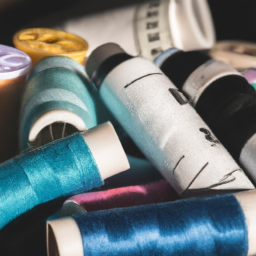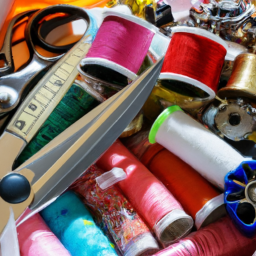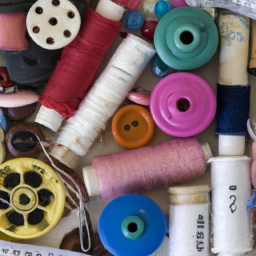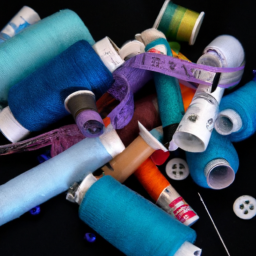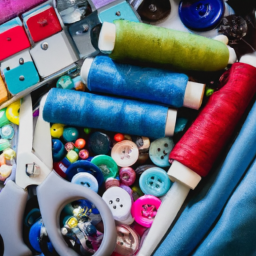

Embroidery is an intricate craft that requires attention to detail and high-quality materials. One key component of successful embroidery projects is the sewing thread. Choosing the right thread can make a significant difference in the final look and feel of your embroidered designs.
Types of Sewing Thread for Embroidery
There are several types of sewing thread commonly used for embroidery:
- Cotton Thread: Cotton thread is extremely popular among embroidery enthusiasts. It is lightweight, easily manageable, and comes in various thicknesses. Its natural fibers give a soft and matte finish to embroidery, making it ideal for delicate designs.
- Polyester Thread: Polyester thread is known for its durability, strength, and resistance to fading and shrinkage. It provides a glossy appearance, making the colors pop and giving a vibrant look to the embroidered designs. Polyester thread is especially suitable for designs that require a high level of color saturation.
- Rayon Thread: Rayon thread is another popular choice for embroidery. It has a natural sheen that adds a luxurious touch to the designs. Rayon thread is widely used for decorative embroidery and can be an excellent choice for creating intricate patterns.
- Metallic Thread: If you want to add a touch of sparkle to your embroidery, metallic thread is the way to go. Made from a blend of polyester and metallic fibers, this type of thread catches and reflects light, resulting in a shimmering effect. Metallic thread is perfect for accentuating details and creating eye-catching embroidery.
Factors to Consider When Choosing Sewing Thread
When selecting sewing thread for embroidery, it’s essential to consider the following factors:
- Thread Thickness: Different embroidery techniques and designs require varying thread thicknesses. Thicker threads are suitable for bold and visible designs, while thinner threads are great for intricate details. Determine the look you want to achieve and select the thread thickness accordingly.
- Color Fastness: Ensure that the thread you choose has excellent colorfast properties, meaning it won’t fade or bleed over time. This is particularly crucial if the embroidered piece will be washed or exposed to sunlight.
- Tensile Strength: The strength of the thread is crucial in ensuring the longevity of the embroidery. It should withstand regular wear and tear without breaking or fraying.
- Compatibility: Consider the type of fabric you will be embroidering on and choose threads that are compatible with it. Different fabrics may require different thread materials to achieve the desired results.
Investing in high-quality sewing thread specifically designed for embroidery will ensure that your finished pieces retain their beauty and withstand the test of time. Remember to choose thread colors that complement your design and experiment with different textures and finishes to bring your embroidery to life!
